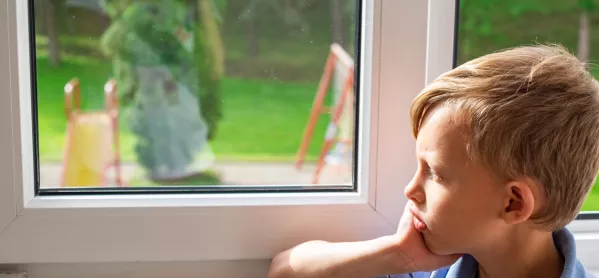- Home
- Did pupils experience lockdown as trauma?
Did pupils experience lockdown as trauma?

There has been much talk of a “recovery curriculum” to overcome the loss of learning during the coronavirus pandemic. And teachers regularly discuss retrieval practice as a way to test and consolidate pupils’ learning.
But, beyond curriculum and assessment, it is important to think about memory in a different way. This will be particularly pertinent to those in pastoral roles, from form tutors and heads of year to safeguarding leads.
We must seek to understand how the period away from school may have affected different pupils, and - perhaps more importantly - how pupils will remember that time.
This understanding is important if we are to effectively support pupils returning to school.
Traumatic for many
The time away from school has been traumatic for many. Trauma refers to an overwhelming unanticipated event, which cannot be processed by the individual and can be a threat to a young person’s wellbeing.
When confronted with trauma such as the coronavirus pandemic, a child may not have been able to cope with the experience. While very young children may not remember specific events, they do remember emotions, images and can be reminded of situations that cause them to be upset. (Teachers may find The Boy Who was Raised as a Dog by Perry and Szalavitz interesting as further reading here.)
Children often know when those they love are worried and are not available to them. It is clear that this may have been an issue during lockdown, and some parents may still be emotionally unavailable now, as they worry about the economic impact of the pandemic.
This trauma, and memory of trauma, is exacerbated by the impact of social media today, as children may feel they are constantly confronted by news and emotionally charged material. TikTok and Snapchat formed the soundtrack to lockdown for many.
A study in trauma
It is useful to consider a study in trauma to help us understand the potential impact of the pandemic on our pupils. Five years after the 2004 tsunami in Asia, children aged between seven and 13, living in Aceh, Indonesia, were assessed for memories of the tsunami. These included both personal memories and memories from second-hand sources (hence the relevance of social media).
Almost half the children showed signs of PTSD. Two-thirds of children reported direct memories of the tsunami, and one-third reported having memories based on reports from other people.
More children (97 per cent) recalled the event from an onlooker’s perspective to some extent than recalled the event directly (63 per cent). Boys were more likely to rely on stories from others to reconstruct their memory of the tsunami, and to adopt an observer’s perspective.
We must be aware of stereotypes here. Do we assume that girls are more sensitive than boys? That boys are more robust than girls? These stereotypes can be damaging in everyday life, but especially when responding to trauma.
Our understanding of this period must also look beyond gender, to consider family arrangements and socioeconomic status.
Where memories and experience diverge
Children of key workers will have a very different memory of the past few months from those living in multigenerational households or households where parents were present and attentive. Despite the clapping for carers and the initial outpouring of gratitude seen for NHS staff, we cannot assume that children of key workers will all have seen their parents’ role so positively.
Some children, meanwhile, may have been lavished with new toys and treats throughout. But those children who, it may seem, had everything, may still remember this period negatively.
The key thing is to avoid assumptions about a child’s experience, as their memory of lockdown may not reflect what they actually experienced at the time. Rather, it may reflect what they absorbed from social media or gleaned from parents.
The number of children from the Indonesian tsunami who later developed signs of PTSD is startling and is something teachers must be alert to. Many schools will have teachers trained in mental-health first aid. Others will not. But, regardless, all teachers can be alert, and display the professional curiosity necessary to detect issues as early as possible.
Similarly, we should look out for our colleagues: think about the ones who may have had little contact with school throughout. Perhaps now would be a good time to reach out to them. Also note that many members of senior leadership teams have not had a break since March: they may be a bit tired. Spare a thought for them.
Children’s charity Save the Children suggests that promoting a sense of calm, community efficacy, connectedness, and hope are important ingredients for coping in difficult situations. This seems wise advice to take forward into the new term.
Gemma Hargraves is a history teacher and head of lower school at an independent girls’ school in the Midlands
Keep reading for just £1 per month
You've reached your limit of free articles this month. Subscribe for £1 per month for three months and get:
- Unlimited access to all Tes magazine content
- Exclusive subscriber-only stories
- Award-winning email newsletters



